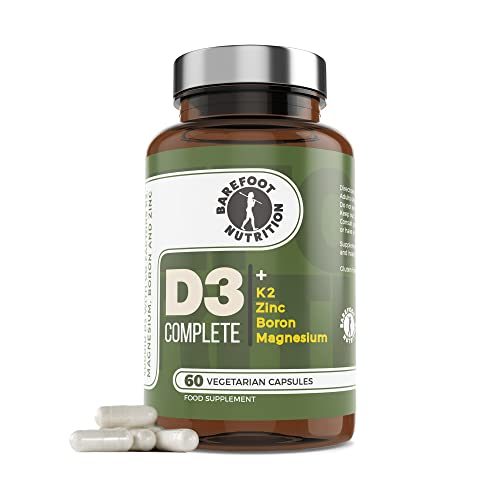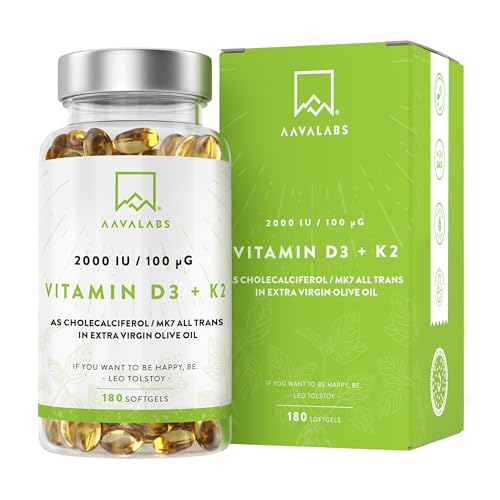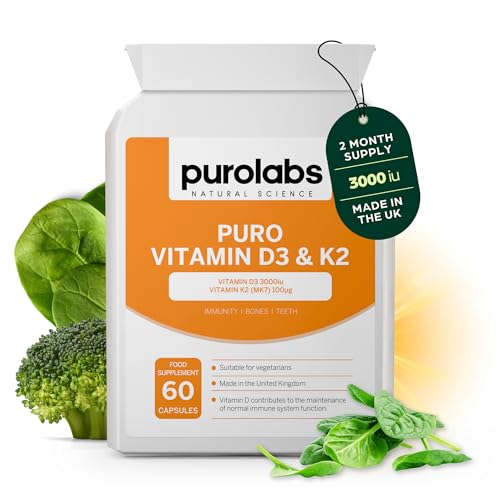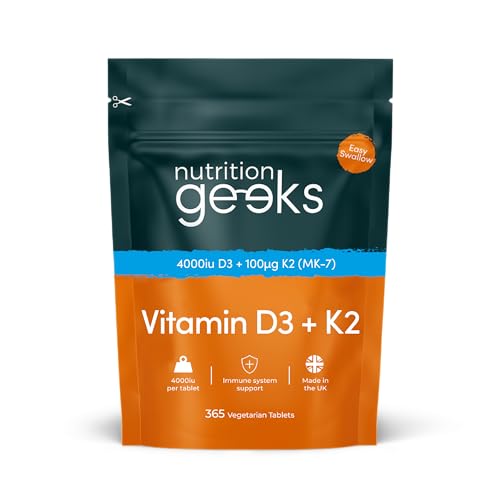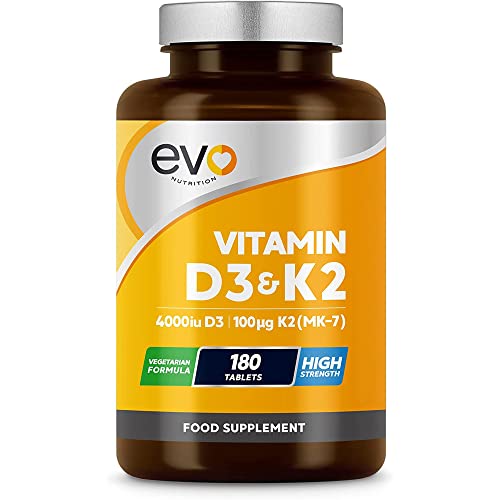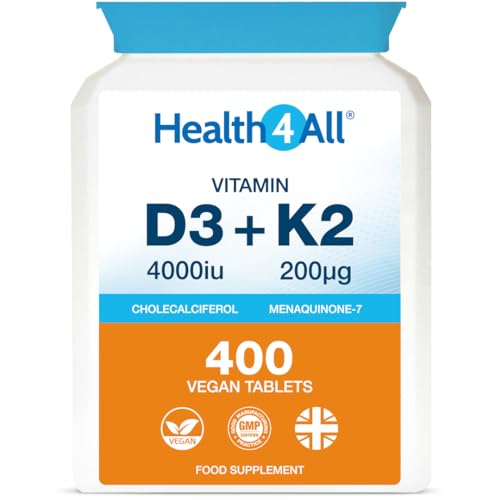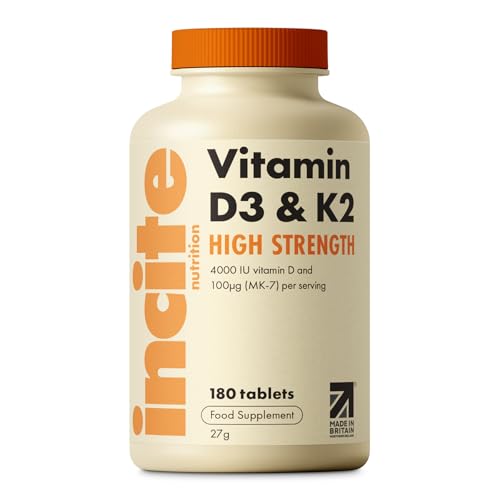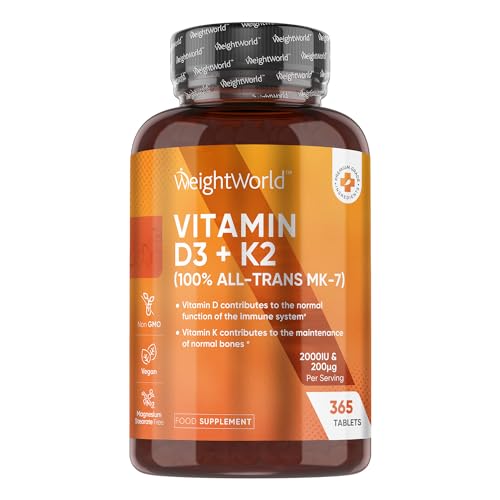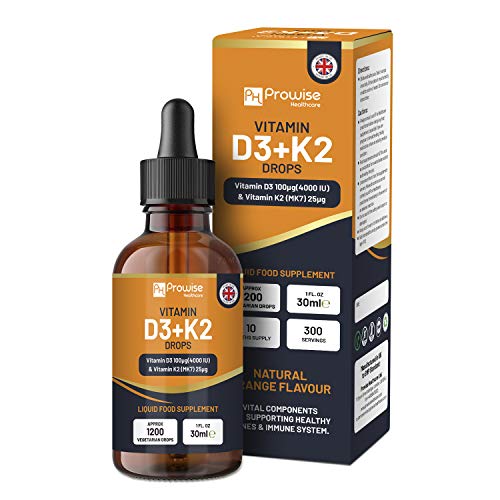Understanding Vitamin D3 and K2: What They Are and How They Work Together
Discovering the Essentials of D3 and K2
Vitamin D3 and K2 are two vital nutrients that play significant roles in our health. Vitamin D3, often referred to as the ‘sunshine vitamin’, is primarily responsible for calcium absorption in our bones, while K2 ensures that this calcium is directed to where it’s most needed—primarily our bones and teeth—rather than accumulating in soft tissues where it can cause harm. Together, they form an essential partnership for maintaining strong bones and a healthy cardiovascular system, ensuring that we not only absorb calcium effectively but also use it correctly.
The Synergy of D3 and K2
The interaction between Vitamin D3 and K2 can be likened to a perfectly choreographed dance. When we consume Vitamin D3, our body boosts calcium levels in the blood, but without sufficient K2, that calcium can linger in areas where it’s not beneficial. K2 acts as a guide, directing calcium to the bones and teeth while preventing it from settling in our arteries. This balance is crucial for overall health, as it helps to reduce the risk of osteoporosis, supports cardiovascular health, and enhances overall wellbeing.
The Benefits of Supplementing with Vitamin D3 and K2: Why It Matters for Your Health
Enhancing Bone Health and Strength
One of the primary benefits of supplementing with these vitamins is the promotion of robust bone health. Research suggests that a combination of D3 and K2 can significantly increase bone density and reduce the risk of fractures as we age. This is especially relevant for individuals at risk of osteoporosis, where maintaining bone mass is a critical aspect of health.
Supporting Heart Health
Beyond bone health, the synergy of Vitamin D3 and K2 also plays a role in cardiovascular health. K2 is essential in preventing arterial calcification, which contributes to heart disease. By facilitating the proper use of calcium, we can support not only healthier bones but also a healthier heart, making this duo important for overall wellness.
Boosting Immune Function
Vitamin D is a known immune booster; therefore, adding this to K2 creates a comprehensive support system for our immune response. During flu seasons or times of stress, having sufficient levels of both D3 and K2 can enhance our body’s ability to fight off infections and maintain a healthy immune system.
Choosing the Right Supplement: Key Factors to Consider When Buying Vitamin D3 and K2
Types of Supplements Available
When considering supplementation, we have the option to choose between individual vitamins or combined formulations. A combined supplement is often more convenient, allowing for a balanced intake of both D3 and K2. If opting for separate vitamins, we need to ensure that the K2 is in the form of MK-7, which is more bioavailable and effective than other forms.
Quality and Source of Ingredients
It’s essential to check the quality of the supplements we’re considering. Look for products that are made from high-quality sources, such as those derived from natural oils or whole foods. Transparency in ingredient sourcing and clear labeling can indicate a reliable product.
Formulas and Additional Ingredients
We should also consider any additional ingredients in the supplement, such as fillers or additives. Opting for a cleaner formula with minimal additives allows us to avoid unnecessary ingredients that provide little benefit. Moreover, some formulations may include synergistic nutrients that can enhance the absorption of D3 and K2.
Dosage Recommendations: How Much Vitamin D3 and K2 Should We Take?
Finding the Right Dosage for Us
The appropriate dosage of Vitamin D3 varies based on factors like age, health status, and sun exposure. Generally, adults may benefit from a daily intake of around 1000 to 4000 IU of Vitamin D3, while for K2, a daily intake of around 90 to 120 mcg is typically recommended. It’s beneficial to consult with a healthcare provider to determine the right dosages tailored for our specific needs.
Monitoring Our Levels
To ensure we maintain optimal health, regular blood tests can provide insight into our vitamin levels. This is particularly useful for Vitamin D, as levels can fluctuate based on various factors, including seasonal changes and diet. By monitoring these levels, we can adjust our intake as necessary, ensuring we are reaping the maximum benefits of both D3 and K2.
Incorporating Vitamin D3 and K2 Into Our Daily Routine: Easy Tips and Tricks
Seamless Integration into Our Diet
Incorporating Vitamin D3 and K2 into our daily routine can be simple and enjoyable. We can find Vitamin D3 in fatty fish, egg yolks, and fortified foods, while K2 is prevalent in fermented foods like natto, dairy products, and certain meats. Including these foods in our meals can naturally boost our intake.
Utilising Supplements Wisely
For those who have difficulty obtaining sufficient amounts through diet alone, supplements can be a practical solution. Taking our vitamins with a meal that contains fats can enhance absorption, as both vitamins are fat-soluble. Setting a daily reminder or aligning our supplement routine with established habits, like breakfast or dinner, can help us remember to take them consistently.
Staying Informed and Mindful
Lastly, staying informed about our nutritional needs can keep us proactive. Following reliable health resources or consulting with a healthcare professional can help guide our decisions. Regularly assessing our dietary patterns and making small adjustments can lead to better health outcomes, ensuring we make the most of the powerful combination of Vitamins D3 and K2.

